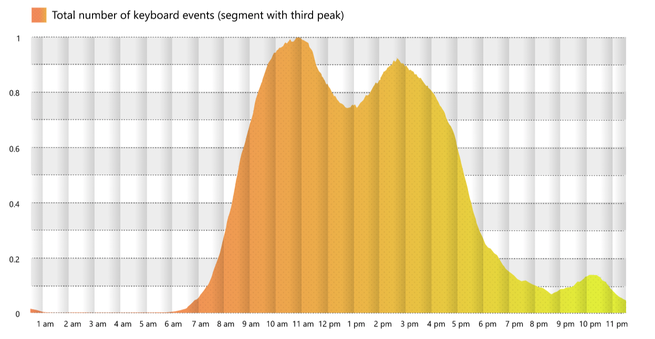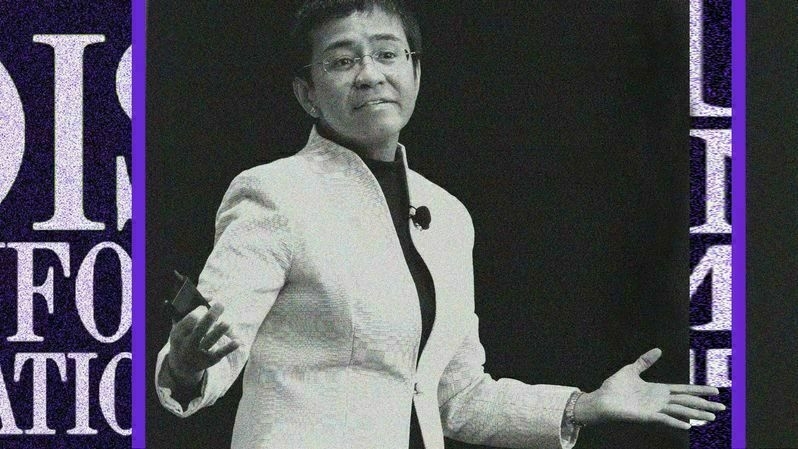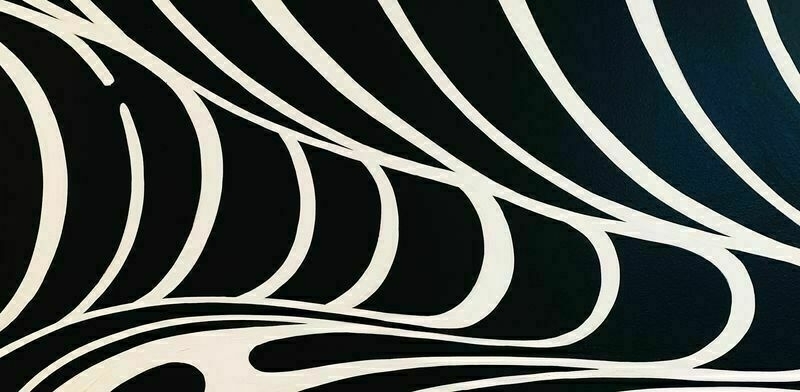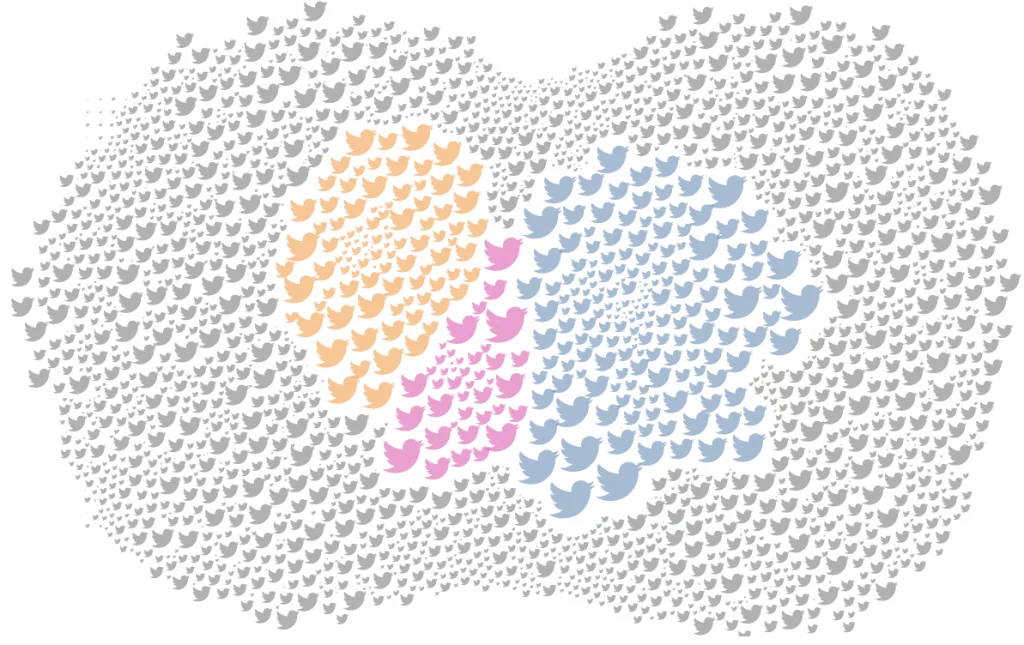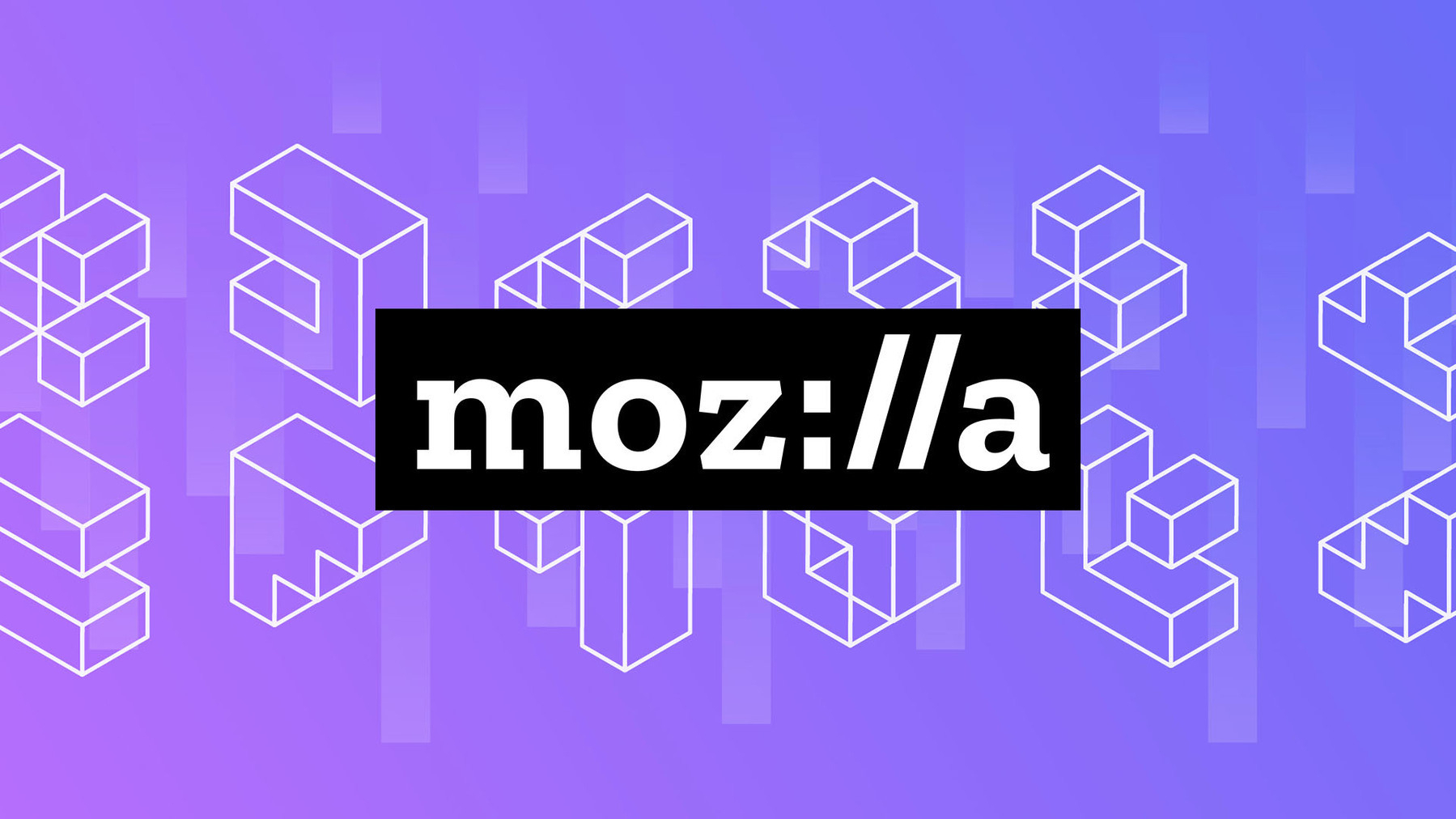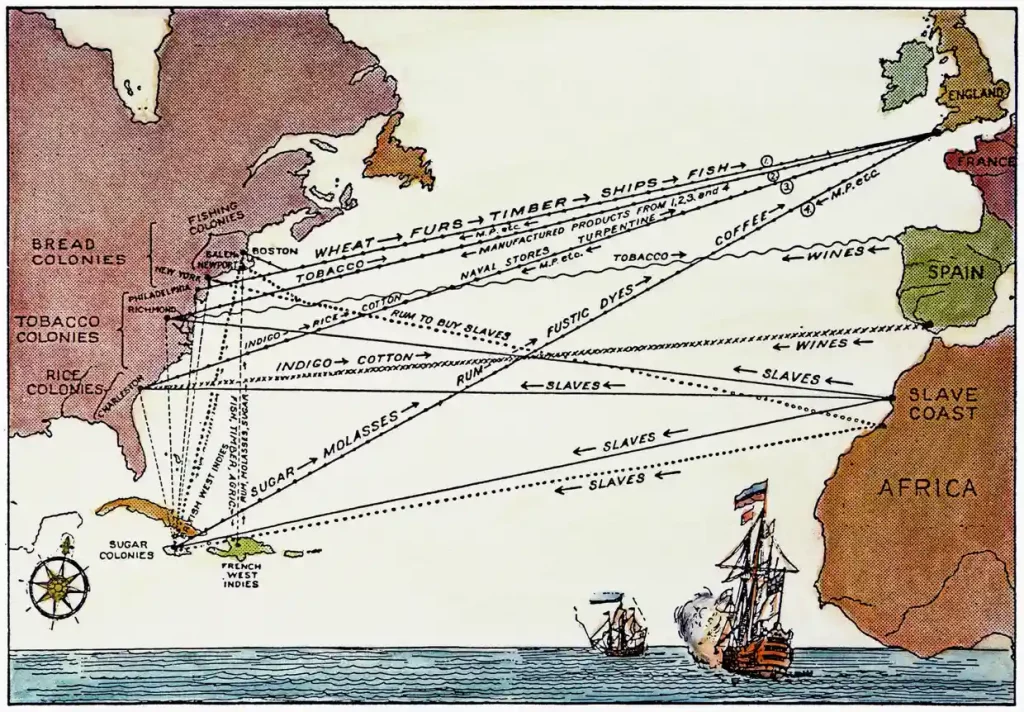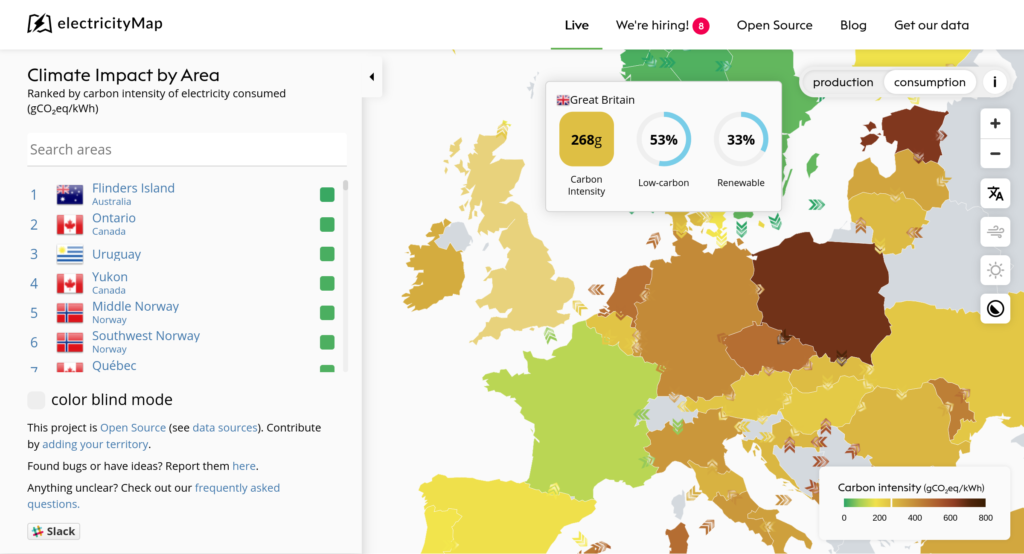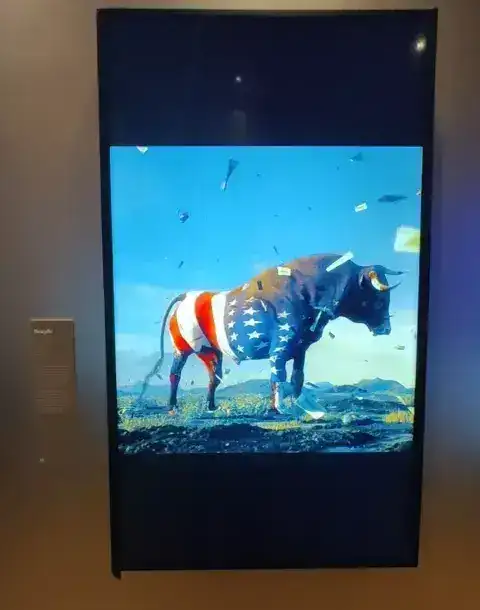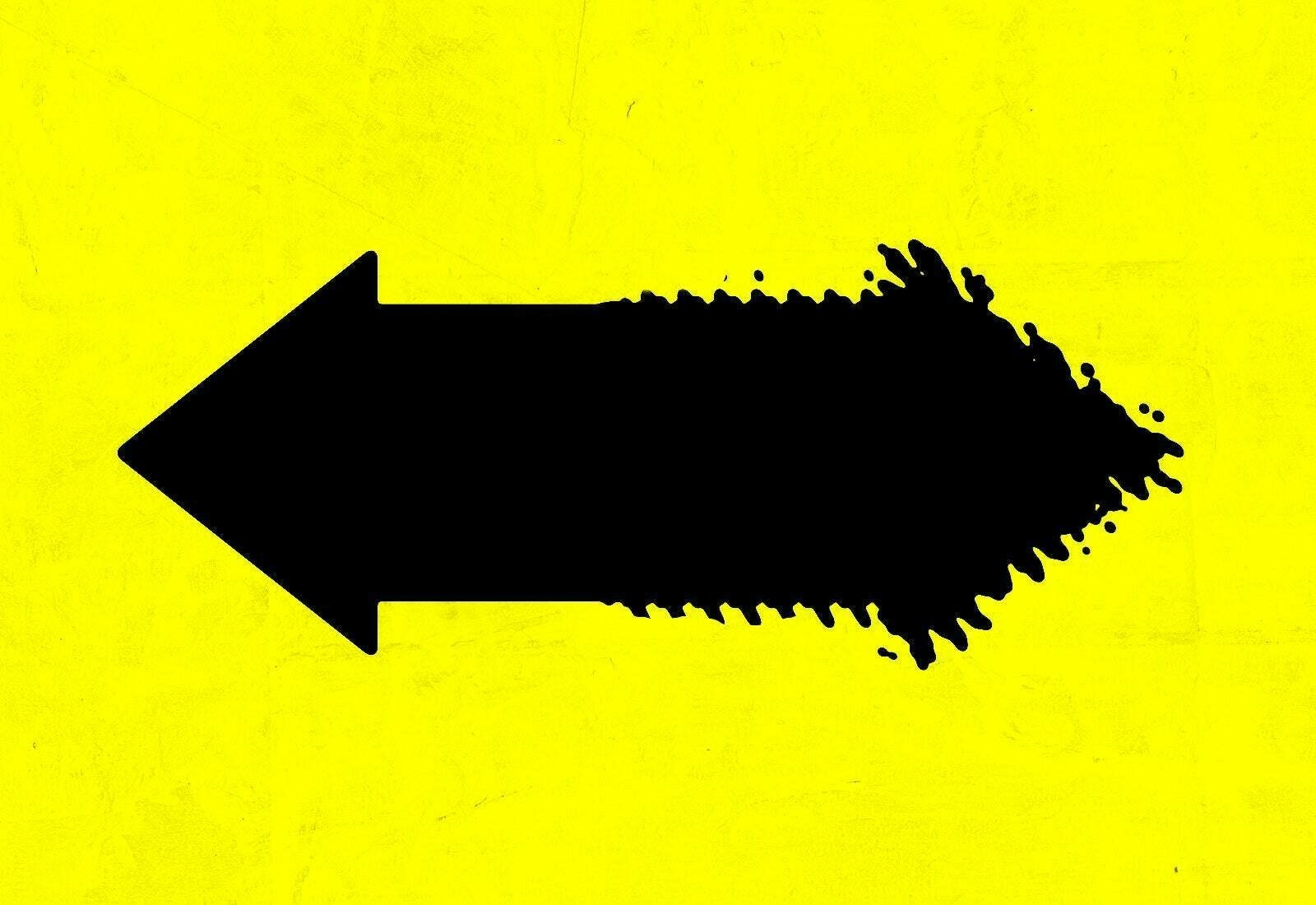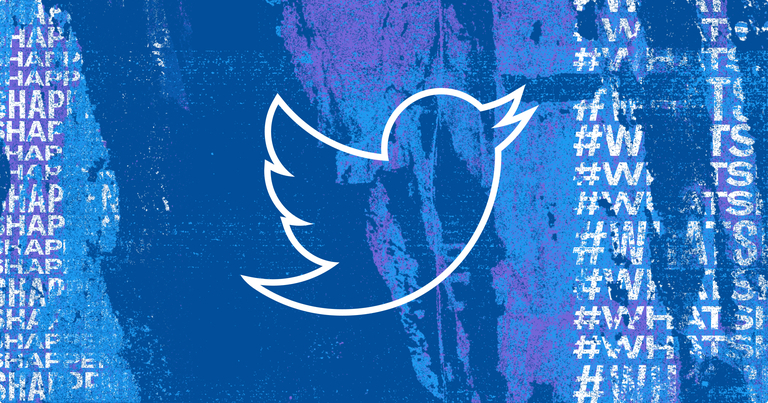The triple-peak work day is a worrying trend
When I first stepped into the world of consulting, I spent around 18 months working with a large organisation. The person I reported to in the organisation did all of his real work in the evenings, because his 9-5 day was completely full of meetings.
Talking in meetings isn’t work. I’ve never thought so, and never will.
Last week, Microsoft published a study that offers an eerie reflection of my working life. Traditionally, the researchers said, white-collar workers—or “knowledge workers,” in the modern parlance—have had two productivity peaks in their workday: just before lunch and just after lunch. But since the pandemic, a third and smaller bump of work has emerged in the late evening. Microsoft’s researchers refer to this phenomenon as the “triple peak day.”Source: The Rise of the 9 p.m. Work Hour | The Atlantic[…]
Several underlying phenomena are pushing up this third mountain of work. One is the flexibility of at-home work. For example, parents of young kids might interrupt their workday or cut it off early for school pickup, dinnertime, bedtime, and other child care. This leaves a rump of work that they finish up later. Other workers are night owls who get their second wind—or even their primary gust of creativity—just before bed.
[...]Something else is pushing work into our evenings: White-collar work has become a bonanza of meetings. In the first months of the pandemic, Microsoft saw online meetings soar as offices shut down. By the end of 2020, the number of meetings had doubled. In 2021, it just kept growing. This year it’s hit an all-time high.
My highlights from 'Drive Your Plow Over the Bones of the Dead'
This morning, I finished reading Drive Your Plow Over the Bones of the Dead, the translated name of Olga Tokarczuk’s 2009 novel, published a decade later in English.
I thought I’d share my five of the sections I highlighted, because it’s one of those books that, despite being a work of fiction, also has sections which describe well the human condition.
(I’ll also note that the book has made me more militantly vegetarian, which I didn’t see coming!)
It is at Dusk that the most interesting things occur, for that is when simple differences fade away. I could live in everlasting Dusk. (p.43)
When you walk past a shop window where large red chunks of butchered bodies are hanging on display, do you stop to wonder what it really is? You never think twice about it, do you? Or when you order a kebab or a chop – what are you actually getting? There’s nothing shocking about it. Crime has come to be regarded as a normal, everyday activity. Everyone commits it. That’s just how the world would look if concentration camps became the norm. Nobody would see anything wrong with them.’ (p.98)
For people of my age, the places that they truly loved and to which they once belonged are no longer there. The places of their childhood and youth have ceased to exist, the villages where they went on holiday, the parks with uncomfortable benches where their first loves blossomed, the cities, cafés and houses of their past. And if their outer form has been preserved, it’s all the more painful, like a shell with nothing inside it any more. I have nowhere to return to. It’s like a state of imprisonment. The walls of the cell are the horizon of what I can see. Beyond them exists a world that’s alien to me and doesn’t belong to me. (p.146)
The psyche is our defence system – it makes sure we’ll never understand what’s going on around us. Its main task is to filter information, even though the capabilities of our brains are enormous. For it would be impossible to carry the weight of this knowledge. Because every tiny particle of the world is made of suffering. (p.197)
Newspapers rely on keeping us in a constant state of anxiety, on diverting our emotions away from the things that really matter to us. Why should I yield to their power and let them tell me what to think? (p.235)Source: Drive Your Plow Over the Bones of the Dead | Wikipedia
Mainstream social media is a behaviour-modification system
A couple of years ago I would have said that this analogy of an atom bomb being exploded over our information ecosystem is a bit extreme. Not now.
I’ve said this over and over, that, really, this is like when 140,000 people died instantly in Hiroshima and Nagasaki. The same thing has happened in our information ecosystem, but it is silent and it is insidious. This is what I said in the Nobel lecture: An atom bomb has exploded in our information ecosystem. And here’s the reason why. I peg it to when journalists lost the gatekeeping powers. I wish we still had the gatekeeping powers, but we don’t.Source: Maria Ressa: How Disinformation Manipulates Elections | The AtlanticSo what happened? Content creation was separated from distribution, and then the distribution had completely new rules that no one knew about. We experienced it in motion. And by 2018, MIT writes a paper that says that lies laced with anger and hate spread faster and further than facts. This is my 36th year as a journalist. I spent that entire time learning how to tell stories that will make you care. But when we’re up against lies, we just can’t win, because facts are really boring. Hard to capture your amygdala the way lies do.
[...]Today we live in a behavior-modification system. The tech platforms that now distribute the news are actually biased against facts, and they’re biased against journalists. E. O. Wilson, who passed away in December, studied emergent behavior in ants. So think about emergent behavior in humans. He said the greatest crisis we face is our Paleolithic emotions, our medieval institutions, and our godlike technology. What travels faster and further? Hate. Anger. Conspiracy theories. Do you wonder why we have no shared space? I say this over and over. Without facts, you can’t have truth. Without truth, you can’t have trust. Without these, we have no shared space and democracy is a dream.
Certain surroundings seem to dispel enchantment, and others encourage it
I really liked this article by Simon Sarris about what we grasp for versus what we get in domestic settings. I’m definitely receptive to the emotional (and even spiritual) aspects of our build environment at the moment, for some reason.
Handcrafted objects, textured colors, unpainted and unpolished surfaces (my walls show their raw plaster), natural materials, sunlight and shadow—all of these are signs of life. Life accepts the imperfect and the changing. The domestic need not be flamboyant—though sometimes it is magnificent to be so—after all my kitchen and Laquy’s are far from neon. But no kitchen or home should look lifeless. The design cues of the modern home are grasping at a kind of modernist perfectionism, and become flat because all life is removed in the process. Professional atmospheres (restaurant kitchens, warehouses, operating rooms) are antiseptic, often they need to be, so they simply banish life.Source: Patina and Intimacy | Simon Sarris[…]
Intimacy is not clutter, but the proper demarcation of space. To lure back enchantment, we must learn to create the nook, to appreciate the wilder garden, to consider the power of shadows and small spaces, to welcome living materials over insensate ones. There is no formula that can easily arrive at intimacy, only a sensitivity to context that can be cultivated. If we look beyond the economic and utilitarian world, we will find a secret one waiting for us.
Are we in a post-album era for music?
One of the downsides of getting older is that things you took to be sacred all of a sudden seem to be obsolete. For example, music albums, which have always been a part of my life, seem to now be referred to in the past tense?
There’s a whole Wikipedia article on the ‘album era’ so… it must be true.
The album era was a period in English-language popular music from the mid-1960s to the mid-2000s in which the album was the dominant form of recorded music expression and consumption. It was primarily driven by three successive music recording formats: the 33⅓ rpm long-playing record (LP), the audiocassette, and the compact disc. Rock musicians from the US and the UK were often at the forefront of the era, which is sometimes called the album-rock era in reference to their sphere of influence and activity. The term "album era" is also used to refer to the marketing and aesthetic period surrounding a recording artist's album release.Source: Album era | Wikipedia
Warren Ellis' work day routine
I think the realisation that it’s impossible to ‘keep up’ (whatever that means) with even a subset of an industry these days may be the key to enlightenment.
One of the great things for me about Thought Shrapnel is that I can bookmark things I’d potentially go back and read. Then, if I do get the chance, I can share them here. It sounds like Ellis is doing something similar with his site.
I was telling someone the other day: I have become the old man who reads the papers in the morning and then watches the news analysis show on tv at night. The phone is now “the papers.”Source: Morning Routine and Work Day, Spring 2022 | WARREN ELLIS LTD[…]
I think I have only about eighty sites in my RSS reader these days, which generally generate some 150 new posts to read through. I should post an updated RSS list so I can see for myself.
My inputs used to be twenty times that, and constant from when I woke up to when I finally slept. That thing when you wake up with a shudder and reach for the phone because you’re behind the moment. But I suspect it took a pandemic and serial lockdowns for me to understand that, even when I was feeling good, it was like a motion detector alarm was going off in my head every second for eighteen hours a day. And you get so trained to it that when the alarms drop to just once every sixty seconds, you go looking for more input to bring the rate back up. I’ve been working hard to get past that
Image: Jon Tyson
Get off Twitter if you want to see your friends' posts
Tyler Freeman wrote a script to analyse the tweets he’s shown in his algorithmic Twitter timeline. 90% of his friends (i.e. the people he chose to follow) never made it to the main feed.
The diagram below shows the 90% in grey, withthe people he follows in orange, strangers are in blue, and ads are pink. This is what happens when you have software with shareholders.
I am following over 2,000 people, so to only see tweets from 10 percent of them is disconcerting; 90 percent of the people I intentionally follow, and want to hear from, are being ignored/hidden from me. When we dig deeper, it gets even worse.Source: Does Twitter’s Algorithm Hate Your Friends? | Nightingale[…]
The way I see it, the centralized path via government regulation is a short-term fix which may be necessary given the amount of power our current societal structures allot to social media corporations, but the long-term fix is to put the power into the hands of each user instead—especially considering that centralized power structures are how we got into this mess in the first place. I’m eager to see what this new world of decentralization will bring us, and how it could afford us more agency in how we donate our attention and how we manage our privacy.
Virtual Photographer Of The Year awards
I love Red Dead Redemption 2, and it’s great that the stunning vistas and scenery in the game is recognised.
During London Games Festival, a 'Red Dead Redemption 2' screenshot won a competition promoting the art of virtual photography.Source: 'Red Dead Redemption 2' screenshot wins Virtual Photographer Of The Year
The future of the web, according to Mozilla
There’s nothing particularly wrong with this document. It’s just not very exciting. Maybe that’s OK.
Mozilla's mission is to ensure that the Internet is a global public resource, open and accessible to all. We believe in an Internet that puts people first, where individuals can shape their own experience and are empowered, safe, and independent.Source: Mozilla’s vision for the evolution of the WebThe Internet itself is low-level infrastructure — a connective backbone upon which other things are built. It’s essential that this backbone remains healthy, but it’s also not enough. People don’t experience the Internet directly. Rather, they experience it through the technology, products, and ecosystems built on top of it. The most important such system is the Web, which is by far the largest open communication system ever built.
This document describes our vision for the Web and how we intend to pursue that vision. We don’t have all the answers today, and we expect this vision to evolve over time as we identify new challenges and opportunities. We welcome collaboration — both in realizing this vision, and in expanding it in service of our mission.
Historic aerial photos of England
It's annoying they can't be downloaded, but fun to see historic aerial photos of my home town!
You can explore over 400,000 digitised photos taken from our aerial photo collections of over 6 million photographs preserved in the Historic England Archive.Source: Aerial Photo Explorer – Over 400,000 aerial photos in Historic England's digitised collections | Historic England
How to be a darknet drug lord
Wow, who knew how difficult it was to be a criminal? Found via HN.
You're an aspiring drug kingpin. Go out and pay cash for another computer. It doesn't have to be the best or most expensive, but it needs to be able to run Linux. For additional safety, don't lord over your new onion empire from your mother's basement, or any location normally associated with you. Leave your phone behind when you head out to manage your enterprise so you aren't tracked by cell towers. Last but not least for this paragraph, don't talk about the same subjects across identities and take counter-measures to alter your writing style.Source: So, you want to be a darknet drug lord… | nachash[…]
Disinformation is critical to your continued freedom. Give barium meat tests to your contacts liberally. It doesn’t matter if they realize they’re being tested. Make sure that if you’re caught making small talk, you inject false details about yourself and your life. You don’t want to be like Ernest Lehmitz, a German spy during World War II who sent otherwise boring letters about himself containing hidden writing about ship movements. He got caught because the non-secret portion of his letters gave up various minor personal details the FBI correlated and used to find him after intercepting just 12 letters. Spreading disinformation about yourself takes time, but after a while the tapestry of deceptions will practically weave itself.
[…]
Take-away: If you rely only on tor to protect yourself, you’re going to get owned and people like me are going to laugh at you. Remember that someone out there is always watching, and know when to walk away. Do try to stay safe while breaking the law. In the words of Sam Spade, “Success to crime!"
British monarchs helped fund, and profited from, the slave trade
The monarchy wasn’t a force for good during the age of colonialism/empire, nor is it a force for good now.
In 1660, the Royal African Company was established by the Duke of York, who later became James II, with involvement from his brother, Charles II. The Royal African Company was prolific within the slave trade; according to the Slave Voyages website, between 1672 and 1731 the Royal African Company transported more than 187,000 slaves from Africa to English colonies in North, Central and South America. Many of the enslaved Africans transported by the Royal African Company were branded “DY”, standing for Duke of York.Source: What are the British monarchy’s historical links to slavery? | The GuardianBetween 1690 and 1807, an estimated 6 million enslaved Africans were transported from west Africa to the Americas on British or Anglo-American ships. The slave trade was protected by the royal family and parliament.
Live map of electricity production highlights carbon criminals
This live map of electricity production and consumption is really interesting, on a number of levels. First, it’s great that it exists! It really helps show, for example, that Poland needs to get its act together.
But also, design decisions matter. For example, the focus on carbon, while important, obscures the fact that nuclear might help get us out of the current mess but is really storing up problems for future generations.
electricityMap is a live visualization of where your electricity comes from and how much CO2 was emitted to produce it.Source: electricityMap | Live CO₂ emissions of electricity consumption
Do NFTs tend towards dystopia?
At the weekend I visited the Moco Museum with my wife in Amsterdam. It’s the first time I’ve seen an NFT art exhibition. It wasn’t… bad? But, as someone commented when I said as much on social media, the ownership model is kind of irrelevant. It’s the digital art that matters.
(the animation below is from a video I took of an appropriate Beeple artwork)
What I think we’re all starting to realise is that for everything to be on the blockchain, we would need to fundamentally change the nature of human interaction. And that change would be toward dystopia.
In this article, James Grimmelmann, who is a professor at Cornell Law School and Cornell Tech (where he directs the Cornell Tech Research Lab in Applied Law and Technology) explains just this.
Loosely speaking, there are three kinds of property you could use an NFT to try to control ownership of: physical things like houses, cars, or tungsten cubes; information like digital artworks; and intangible rights like corporate shares.Grimmelmann clarifies in a footnote that just because NFTs might work for art, doesn’t mean they’re appropriate for… well, anything else:By default, buying an NFT “of” one of these three things doesn’t give you possession of them. Getting an NFT representing a tungsten cube doesn’t magically move the cube to your house. It’s still somewhere else in the world. If you want NFTs to actually control ownership of anything besides themselves, you need the legal system to back them up and say that whoever holds the NFT actually owns the thing.
Right now, the legal system doesn’t work that way. Transfer of an NFT doesn’t give you any legal rights in the thing. That’s not how IP and property work. Lawyers who know IP and property law are in pretty strong agreement on this.
It’s possible to imagine systems that would tie legal ownership to possession of an NFT. But they’re (1) not what most current NFTs do, (2) technically ambitious to the point of absurdity, and (3) profoundly dystopian. To see why, suppose we had a system that made the NFT on a blockchain legally authoritative for ownership of a copyright, or of an original object, etc. There would still be the enforcement problem of getting everyone to respect the owner’s rights.
A lot of the current hype around NFTs consists of the belief that the rest of the world will follow the same rules as NFT art. But of course part of the point of art is that it doesn’t follow the same rules as the rest of the world.Source: I Do Not Think That NFT Means What You Think It Does | The Laboratorium
Hamiltonians and Jeffersonians
Cory Doctorow quite rightly calls out that Big Tech’s “too big to fail” status has created “oligopolistic power” which limits our choice over how we’re connected to the people we want to interact with.
I like his reference of Frank Pasquale’s two approaches to regulation. I guess I’m a Jeffersonian, too…
Every community has implicit and explicit rules about what kinds of speech are acceptable, and metes out punishments to people who violate those rules, ranging from banishment to shaming to compelling the speaker to silence. You’re not allowed to get into a shouting match at a funeral, you’re not allowed to use slurs when addressing your university professor, you’re not allowed to explicitly describe your sex-life to your work colleagues. Your family may prohibit swear-words at Christmas dinner or arguments about homework at the breakfast table.Source: To Make Social Media Work Better, Make It Fail Better | Electronic Frontier FoundationOne of the things that defines a community are its speech norms. In the online world, moderators enforce those “house rules” by labeling or deleting rule-breaking speech, and by cautioning or removing users.
Doing this job well is hard even when the moderator is close to the community and understands its rules. It’s much harder when the moderator is a low-waged employee following company policy at a frenzied pace. Then it’s impossible to do well and consistently.
[…]
It’s not that we value the glorious free speech of our harassers, nor that we want our views “fact-checked” or de-monetized by unaccountable third parties, nor that we want copyright filters banishing the videos we love, nor that we want juvenile sensationalism rammed into our eyeballs or controversial opinions buried at the bottom of an impossibly deep algorithmically sorted pile.
We tolerate all of that because the platforms have taken hostages: the people we love, the communities we care about, and the customers we rely upon. Breaking up with the platform means breaking up with those people.
It doesn’t have to be this way. The internet was designed on protocols, not platforms: the principle of running lots of different, interconnected services, each with its own “house rules” based on its own norms and goals. These services could connect to one another, but they could also block one another, allowing communities to isolate themselves from adversaries who wished to harm or disrupt their fellowship.
[…]
Frank Pasquale’s Tech Platforms and the Knowledge Problem poses two different approaches to tech regulation: “Hamiltonians” and “Jeffersonians” (the paper was published in 2018, and these were extremely zeitgeisty labels!).
Hamiltonians favor “improving the regulation of leading firms rather than breaking them up,” while Jeffersonians argue that the “very concentration (of power, patents, and profits) in megafirms” is itself a problem, making them both unaccountable and dangerous.
That’s where we land. We think that technology users shouldn’t have to wait for Big Tech platform owners to have a moment of enlightenment that leads to its moral reform, and we understand that the road to external regulation is long and rocky, thanks to the oligopolistic power of cash-swollen, too-big-to-fail tech giants.
Cancel Technology
Noah Smith makes a good point in this article that ‘cancel culture’ has always existed, we just called it ‘social ostracism’. The difference is the technology we interact with, and the intended and unintended audiences with which we communicate.
First let’s think about distribution. In the olden days, you could “read the room” and decide whether you were going to get a sympathetic ear before you said something. You knew who you were hanging out with — your relatives, or your coworkers, or your buddies, or your neighbors, or your cell of the Communist Party, etc. On the internet, that’s much less true. On Twitter, anyone can see what you write and retweet it or screenshot it to millions of strangers all over the globe. In a Facebook group, you probably don’t know exactly what kind of others are in the group unless it’s really small. If you put something up on a website, anyone can read it. Etc.Source: It’s not Cancel Culture, it’s Cancel Technology | NoahpinionThe internet also makes it much less hard to maintain private spaces because text can be screenshotted and distributed widely. In the old days, if you said something that would be cancel-worthy outside the group of people you were talking to, it was impossible for someone to verifiably transmit that information outside the group — they could snitch on you, but it would be hearsay and you could deny it. But when you write something down, the text of what you wrote can be screenshotted and distributed widely to people that you didn’t expect to be watching you.
Now, this broad distribution has a number of effects. It makes it a lot harder to get together with your buddies in private and say racist or sexist stuff, because now one of them can betray you with a screenshot. Lots of people are probably pleased with that outcome.
But it also means that everyone who talks on the internet must always worry about their words being shown to someone who’s going to interpret it in an uncharitable way.
[…]
Thus, the internet changes Cancel Culture by massively increasing the number of people who can target you for ostracism. It’s a bit like living in a gossipy small town where you don’t know any of your neighbors — you don’t know who’s going to read what you write, so you don’t know how people are going to take what you say.
Declining trust in society isn't just a 'vibe shift'
This is a wide-ranging and somewhat jumbled article which nevertheless has at its core a key point about the decline in trust in society. That’s not just a ‘vibe shift’ but a more permanent and worrying state of affairs.
Consider the Edelman Trust Barometer. The public relations firm has been conducting an annual global survey measuring public confidence in institutions since 2000. Its 2022 report, which found that distrust is now “society’s default emotion,” recorded a trend of collapsing faith in institutions such as government or media.Source: What You’re Feeling Isn’t A Vibe Shift. It’s Permanent Change. | BuzzFeed News[…]
It’s difficult to imagine how trust in national governments can be repaired. This is not, on the face of it, apocalyptic. The lights are on and the trains run on time, for the most part. But civic trust, the stuff of nation-building, believing that governments are capable of improving one’s life, seems to have dimmed.
Twitter autoblock is what you get when you have software with shareholders
I heard from a former colleague that they’d been ‘autoblocked’ on Twitter for responding snarkily to someone. I don’t have an account there any more, so had to look up what they meant.
This kind of algorithmic blocking is the exact opposite of what you’d want from a platform that genuinely cared about human, community-focused interaction. We need to avoid this kind of approach with the Bonfire Zappa project.
It’s the unaccountability of it that gets me. The algorithm is a black box.
Twitter is currently experimenting with a feature called Safety Mode that detects and blocks potentially harmful language or repetitive, unwelcome interactions.Source: About autoblock by TwitterSome things to know about autoblock
- Autoblocks come from Twitter, not individuals.
- Autoblocks last for 7 days, but can be undone by the account owner at any time.
- There’s no limit to how long someone stays in Safety Mode.
- Just like when someone blocks you, if you’re autoblocked, it won't be possible to interact with them, see their Tweets, follow them, or send them Direct Messages.
- Existing replies from autoblocked accounts move to the bottom of the conversation.
Antartica used to be covered in rainforest
Given the news that both the Arctic and Antarctic are currently a lot warmer than expected, this is interesting news. Sea levels 170 metres higher than normal would mean that my house would be underwater…
A team from the UK and Germany discovered forest soil from the Cretaceous period within 900 km of the South Pole. Their analysis of the preserved roots, pollen and spores shows that the world at that time was a lot warmer than previously thought.Source: Traces of ancient rainforest in Antarctica point to a warmer prehistoric world | Imperial News | Imperial College London[…]
The work also suggests that the carbon dioxide (CO2) levels in the atmosphere were higher than expected during the mid-Cretaceous period, 115-80 million years ago, challenging climate models of the period.
The mid-Cretaceous was the heyday of the dinosaurs but was also the warmest period in the past 140 million years, with temperatures in the tropics as high as 35 degrees Celsius and sea level 170 metres higher than today.
[…]
They found that the annual mean air temperature was around 12 degrees Celsius; roughly two degrees warmer than the mean temperature in Germany today. Average summer temperatures were around 19 degrees Celsius; water temperatures in the rivers and swamps reached up to 20 degrees; and the amount and intensity of rainfall in West Antarctica were similar to those in today’s Wales.
San Francisco is built on the carcasses of old ships
Very cool. There’s a metaphor in there somewhere.
When the gold rush began in 1848, thousands of people sailed into California, hoping to strike it rich. The ships that sailed there were often just enough to get the crew there. Many would never sail again.Source: Why is San Francisco's Foundation is Built on Old Ships from the Mid-1800s? | Interesting EngineeringA large portion of the ships that landed in San Francisco Bay were simply left to rot as the crews they brought got caught up in gold fever. At the height of the gold rush, there were 500 to one thousand ships moored in the harbor, clogging up traffic and making the waters almost un-navigable.
The city needed land, and since most of it had already been built on, politicians devised a brilliant solution: start building on the water. The city started selling plots of bay water on the condition that the new owner would turn it into new land. So, ships were intentionally run aground and built into hotels and bars – they became part of the city.
